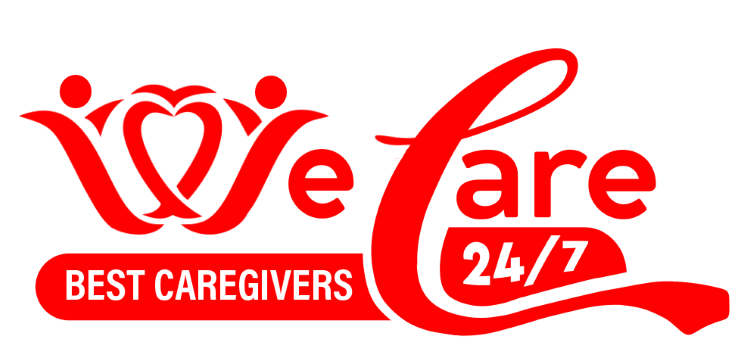Understanding NJ’s Regional Early Intervention Collaboratives (REICs): A Guide for New Jersey Families and Caregivers

Understanding NJ’s Regional Early Intervention Collaboratives (REICs): A Guide for New Jersey Families and Caregivers
Navigating the landscape of care and support services for loved ones can be a complex journey, whether you’re an adult child seeking options for an aging parent, a senior considering in-home care, or a caregiver supporting an individual with disabilities. While our primary focus at WeCare Home Caregivers is providing exceptional in-home assistance for seniors and those with disabilities, we recognize that comprehensive family well-being often extends to supporting every generation. This includes understanding vital resources available for the youngest members of our community, especially when developmental support is needed.
Early intervention services play a profound role in a child’s development and, by extension, the stability and well-being of the entire family unit. For New Jersey families, the gateway to these essential services is often through the Regional Early Intervention Collaboratives, or REICs. Understanding how REICs operate can significantly empower families, reduce stress, and ensure children receive the vital support they need during their foundational years. This knowledge contributes to a healthier family dynamic, which ultimately benefits everyone, including those caring for seniors or individuals with disabilities within the same household.
What Are New Jersey Regional Early Intervention Collaboratives (REICs)?
Regional Early Intervention Collaboratives (REICs) serve as the local hubs for New Jersey’s statewide Early Intervention System (NJEIS). These collaboratives are designed to be the single point of entry for families seeking developmental support for infants and toddlers, from birth to age three. Think of them as the orchestrators of early intervention services within specific geographic regions of New Jersey, ensuring that children with identified developmental delays or disabilities, and their families, receive timely and appropriate assistance.
The primary aim of REICs is to coordinate and facilitate access to a wide array of therapeutic and supportive services. These services are delivered in a child’s natural environment, meaning places where children typically spend their time, such as home, daycare, or community settings. This approach helps integrate interventions seamlessly into daily life, making them more effective and less disruptive for the child and family.
The New Jersey Early Intervention System (NJEIS) Explained
To fully grasp the significance of REICs, it helps to understand the broader New Jersey Early Intervention System (NJEIS). The NJEIS is a statewide program, overseen by the New Jersey Department of Health, that provides services to children from birth to age three who have developmental delays or disabilities. It operates under Part C of the federal Individuals with Disabilities Education Act (IDEA), which mandates states to offer early intervention services.
The goal of the NJEIS is multifaceted: to enhance the development of infants and toddlers, to minimize the potential for developmental delay, and to enhance the capacity of families to meet the special needs of their child. This system recognizes that a child’s early years are critical for brain development, and timely intervention can significantly impact long-term outcomes, potentially reducing the need for more intensive or costly interventions later in life.
Who Benefits from Early Intervention in NJ?
Children in New Jersey are eligible for early intervention services if they are from birth to age three and have a diagnosed physical or mental condition with a high probability of resulting in developmental delay. This includes conditions such as Down syndrome, cerebral palsy, or vision/hearing impairments. Eligibility also extends to children who demonstrate significant developmental delays in one or more of the following areas:
- Cognitive development: Thinking, learning, problem-solving.
- Physical development: Gross and fine motor skills, vision, hearing.
- Communication development: Understanding and using language.
- Social-emotional development: Interacting with others, expressing feelings.
- Adaptive development: Self-help skills like eating and dressing.
If a child exhibits delays that impact their ability to learn, move, communicate, or interact, the NJEIS, through REICs, can provide comprehensive evaluations and tailored support plans. This proactive approach supports not only the child but also strengthens the entire family unit, aligning with our broader mission at WeCare Home Caregivers to support families through every stage of life.
The Core Functions of REICs: Facilitating Support for NJ Families
REICs perform several vital functions that ensure New Jersey families can access the early intervention services their children need. Their role is comprehensive, spanning from initial contact to ongoing support and quality oversight.
Referral and Intake Coordination
One of the primary functions of an REIC is to serve as the initial point of contact for families, caregivers, or professionals who suspect a child may have a developmental delay. When a referral is made—perhaps by a pediatrician, a concerned parent, or a childcare provider—the REIC processes this intake. They collect initial information, explain the early intervention process, and guide families through the necessary steps to determine eligibility. This initial interaction is crucial, providing reassurance and clarity during what can be an uncertain time for families.
Service Coordination
Upon eligibility, each family is assigned a Service Coordinator by the REIC. This individual becomes the family’s primary point of contact and advocate within the NJEIS. The Service Coordinator’s role is extensive: they help families understand their rights, navigate the system, arrange evaluations, identify appropriate service providers, and coordinate all aspects of the child’s individualized services. They are key to ensuring a smooth and coordinated experience for families, alleviating much of the logistical burden.
Assessment and Evaluation Facilitation
REICs arrange and oversee the comprehensive multidisciplinary evaluations necessary to determine a child’s eligibility for early intervention services. These evaluations involve professionals from various disciplines, such as physical therapists, occupational therapists, speech-language pathologists, and developmental specialists. The REIC ensures that these assessments are conducted thoroughly, accurately, and in a timely manner, providing a holistic picture of the child’s developmental needs and strengths.
Individualized Family Service Plan (IFSP) Development
The cornerstone of early intervention services is the Individualized Family Service Plan (IFSP). Once a child is deemed eligible, the REIC, through the Service Coordinator, facilitates the development of this written plan. The IFSP is a family-centered document that outlines the child’s current developmental levels, identifies specific outcomes for the child and family, and details the services to be provided to achieve those outcomes. It is developed collaboratively with the family, ensuring their priorities, concerns, and resources are central to the plan.
Connecting Families to Resources
Beyond direct therapeutic services, REICs play a significant role in connecting families to a broader network of support. This can include information about parent support groups, advocacy organizations, financial assistance programs, and resources for transitioning out of early intervention services as the child approaches age three. This holistic support recognizes that a child’s development is intertwined with the well-being and capacity of their family and caregivers.
Quality Assurance and Oversight
REICs are also responsible for monitoring the quality and effectiveness of early intervention services provided within their regions. They ensure that service providers meet state standards, that services are delivered consistently with the IFSP, and that families are satisfied with the support they receive. This oversight helps maintain the integrity and high standards of the NJEIS, guaranteeing that New Jersey children receive the best possible care.
Community Outreach and Education
Finally, REICs conduct outreach and educational initiatives within their communities. They work to raise awareness among healthcare providers, childcare centers, and the general public about the importance of early identification of developmental delays and the availability of early intervention services. This proactive approach helps ensure that children who could benefit from services are identified early, leading to more impactful interventions.
Why REICs are Important for New Jersey Families
The existence and efficient operation of REICs are incredibly important for New Jersey families, offering benefits that extend far beyond the child receiving direct services.
Promoting Child Development and Long-Term Outcomes
The most direct impact of REICs is their ability to facilitate early intervention, which has scientifically proven benefits for child development. By addressing delays at a young age, children can make significant progress in their cognitive, physical, communication, and social-emotional skills. This early support can reduce the need for more intensive educational or therapeutic services later in life, contributing to a child’s overall success and independence as they grow.
Empowering Families and Caregivers
REICs empower families by providing them with the knowledge, resources, and support needed to advocate for their child and participate effectively in their development. The Service Coordinator, a key component of the REIC model, becomes a guide and partner, helping families navigate what can otherwise be an overwhelming system. This empowerment reduces stress for parents and caregivers, enabling them to focus more energy on providing nurturing care.
Navigating a Complex System with Ease
Without REICs, families would face the daunting task of identifying, contacting, and coordinating services from multiple agencies and providers on their own. REICs streamline this process, acting as a centralized point of access and coordination. This simplification is invaluable for busy New Jersey families and caregivers, many of whom are already juggling multiple responsibilities, including care for seniors or individuals with disabilities.
Reducing Long-Term Costs and Burdens
Investing in early intervention through REICs can lead to significant long-term savings for families and the state of New Jersey. Early support can mitigate the severity of developmental challenges, potentially reducing the need for costly special education services, medical interventions, or long-term care support later on. This economic benefit underscores the value of a robust early intervention system, supporting the fiscal health of families and the state.
The Connection to WeCare Home Caregivers’ Mission
At first glance, a discussion of early intervention for children might seem distinct from the services offered by WeCare Home Caregivers, which focuses on in-home care for seniors and individuals with disabilities. However, the connection is profound and directly relevant to our target audience.
Many adult children researching care options for their parents are also parents themselves, or they may be supporting other family members, including younger relatives with special needs. The stress and demands of caring for multiple generations can be immense. When a family has a child receiving early intervention services, it often means the parents are already managing significant appointments, therapies, and coordination efforts. Adding the responsibility of elder care or disability care for another family member can become overwhelming.
By understanding resources like REICs, we equip adult children and family caregivers with knowledge that can help alleviate pressure. A well-supported child receiving early intervention means less long-term strain on family resources and time. This, in turn, can free up caregivers to better manage other family responsibilities, including ensuring their senior loved ones receive the dignified, professional care they deserve from agencies like WeCare Home Caregivers.
Our mission at WeCare Home Caregivers extends beyond simply providing care; it is to support the overall well-being of New Jersey families. We believe that by understanding and leveraging resources available across the lifespan—from early intervention for children to compassionate in-home care for seniors—families can build stronger, more resilient support systems. Learning about REICs is one step in building that comprehensive understanding of available community resources.
How to Access NJ Early Intervention Services via an REIC
If you are a New Jersey parent, caregiver, or professional concerned about a child’s development, initiating contact with your local REIC is straightforward. Here’s a general outline of the process:
- Make a Referral: You can contact the New Jersey Early Intervention System (NJEIS) by calling their toll-free number, 1-888-653-4463. This will connect you to the REIC for your specific county or region. Healthcare providers, social workers, or childcare providers can also make referrals with parental consent.
- Initial Contact and Information Gathering: The REIC staff will gather preliminary information about your child and explain the eligibility process, parental rights, and available services.
- Evaluation and Assessment: The REIC will arrange for a comprehensive evaluation of your child by a multidisciplinary team. This assessment determines if your child meets the eligibility criteria for developmental delays or conditions.
- IFSP Development: If eligible, an Individualized Family Service Plan (IFSP) will be developed in collaboration with your family. This plan outlines specific goals and the services to be provided.
- Service Implementation: Services outlined in the IFSP are then delivered in your child’s natural environment by qualified professionals.
- Ongoing Support and Transition Planning: The REIC, through your Service Coordinator, will continue to support your family, monitor progress, and assist with transition planning as your child approaches age three.
For more detailed information or to make a referral, please visit the official New Jersey Department of Health Early Intervention System website. You can also find your specific regional REIC contact information there.
The Broader Impact: A Holistic View of Family Care in New Jersey
Understanding the role of New Jersey’s Regional Early Intervention Collaboratives offers a valuable perspective on the comprehensive nature of family care. While WeCare Home Caregivers provides essential support for seniors and individuals with disabilities, we recognize that healthy families thrive when all members, across generations, receive appropriate care and support. The work of REICs contributes significantly to the foundation of well-being for our state’s youngest residents, which in turn strengthens families as they navigate life’s challenges, including the care needs of their senior loved ones.
By ensuring children receive critical early support, REICs help cultivate resilient families. These families are then better equipped to provide care, seek assistance, and maintain a high quality of life for all members. We are proud to serve New Jersey families, and by shedding light on vital resources like REICs, we aim to contribute to a more informed and supported caregiving community across the state.
For compassionate and professional in-home care services for your senior loved ones or family members with disabilities, WeCare Home Caregivers is here to assist. Contact us today to learn how our tailored care plans can provide peace of mind and support for your family.



